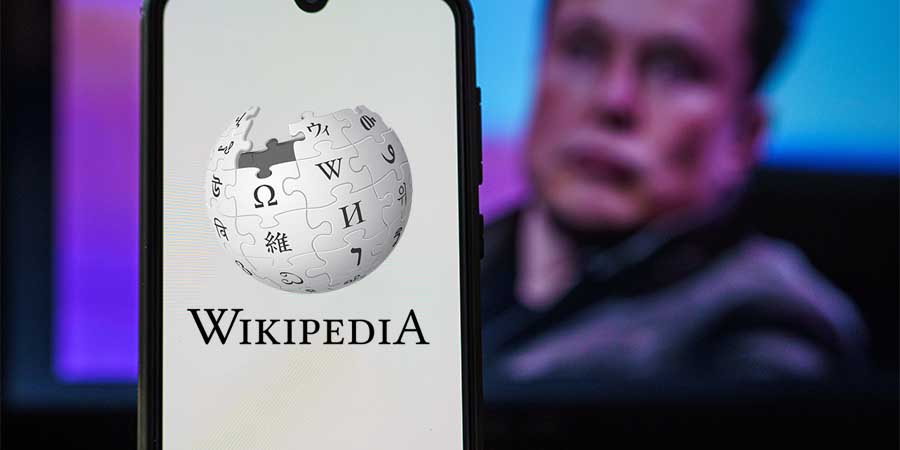In this article, we’ll examine how Twitter, under CEO Elon Musk, is relying on a Wikipedia list to designate news organizations as “government-funded media” and the controversy that has arisen as a result.
Key Takeaways:
- Twitter uses a Wikipedia list to determine “government-funded media” labels.
- Elon Musk acknowledges that labeling NPR as “state-affiliated media” might have been a mistake.
- The new “government-funded media” label has sparked a debate on editorial independence.
- News organizations, including NPR, PBS, BBC, and VOA, have protested the labels.
Twitter’s Reliance on Wikipedia for Media Labeling
It appears that Twitter is using a Wikipedia page on “Publicly-funded broadcasters” to determine which outlets receive the “Government Funded Media” label on their profiles.
This reliance on a user-generated, publicly-editable online encyclopedia has raised several questions about the credibility of such an approach.
According to Twitter’s Help Center, the platform applies labels to government and state-affiliated media accounts.
To ensure accuracy, external sources like Wikipedia may be used to verify the information before applying the label.
Elon Musk’s Response to NPR Controversy
The situation with NPR’s Twitter account has brought this issue to the forefront.
Twitter initially labeled NPR’s account as “state-affiliated media,” a label usually reserved for outlets such as Russia Today and China’s Xinhua News Agency.
However, Elon Musk later admitted that applying this label to NPR might have been a mistake.
Musk reportedly told NPR reporter Bobby Allyn that the principle at new Twitter is to provide fair and equal treatment.
If they label non-US accounts as government-funded, they should do the same for US accounts.
However, he acknowledged that this might not be accurate in NPR’s case.
Twitter has since changed NPR’s label to “government-funded media.”
Debate Over Editorial Independence
This labeling of media organizations based on their funding sources has sparked a debate on editorial independence.
News outlets, such as NPR, argue that receiving government funding doesn’t necessarily imply government influence over their editorial decisions.
According to the website of NPR, the organization receives less than 1% of its yearly funds from federal agencies, departments, and grants given by the Corporation for Public Broadcasting.
Elon Musk, however, has a different perspective.
When informed that the government doesn’t have influence over NPR’s editorial decisions, Musk responded, “If you really think that the government has no influence on the entity they’re funding, then you’ve been marinating in the Kool-Aid for too long,” according to Allyn.
News Organizations Push Back Against Twitter Labels
Several news organizations, including NPR, PBS, BBC, and Voice of America News (VOA), have protested against Twitter’s labels.
NPR has even halted tweeting and stated that it wouldn’t resume until the label is removed, as any tweets posted in the interim would carry a “false disclaimer.”
The BBC, too, has objected to the label, reaching out to Twitter to ask the company to remove it.
The organization stresses that it is funded by individual UK households through the “license fee system” and is editorially independent from the government.
Musk has suggested that Twitter may roll out a label that links to the outlet’s exact funding sources to provide transparency.
PBS and VOA have also expressed their concerns over the new labels.
VOA, in particular, emphasizes that the “government funded” label could be misconstrued as “government-controlled,” which is not the case for VOA.
They maintain an editorial firewall, protected by law, to prevent interference from government officials in news coverage and editorial decision-making processes.
Conclusion
The use of Wikipedia as a source to label news organizations as “government-funded media” has ignited a debate on editorial independence and transparency.
As news outlets like NPR, PBS, BBC, and VOA push back against the labels, Twitter faces a challenge in finding a balanced approach to accurately represent media organizations.
The reliance on Wikipedia for such labeling decisions raises questions about the credibility of this method and has led to a broader discussion on the relationship between funding sources and editorial independence.
It remains to be seen how Twitter will address these concerns while striving for transparency and fairness in its treatment of both domestic and international news outlets.
 Sections of this topic
Sections of this topic
















